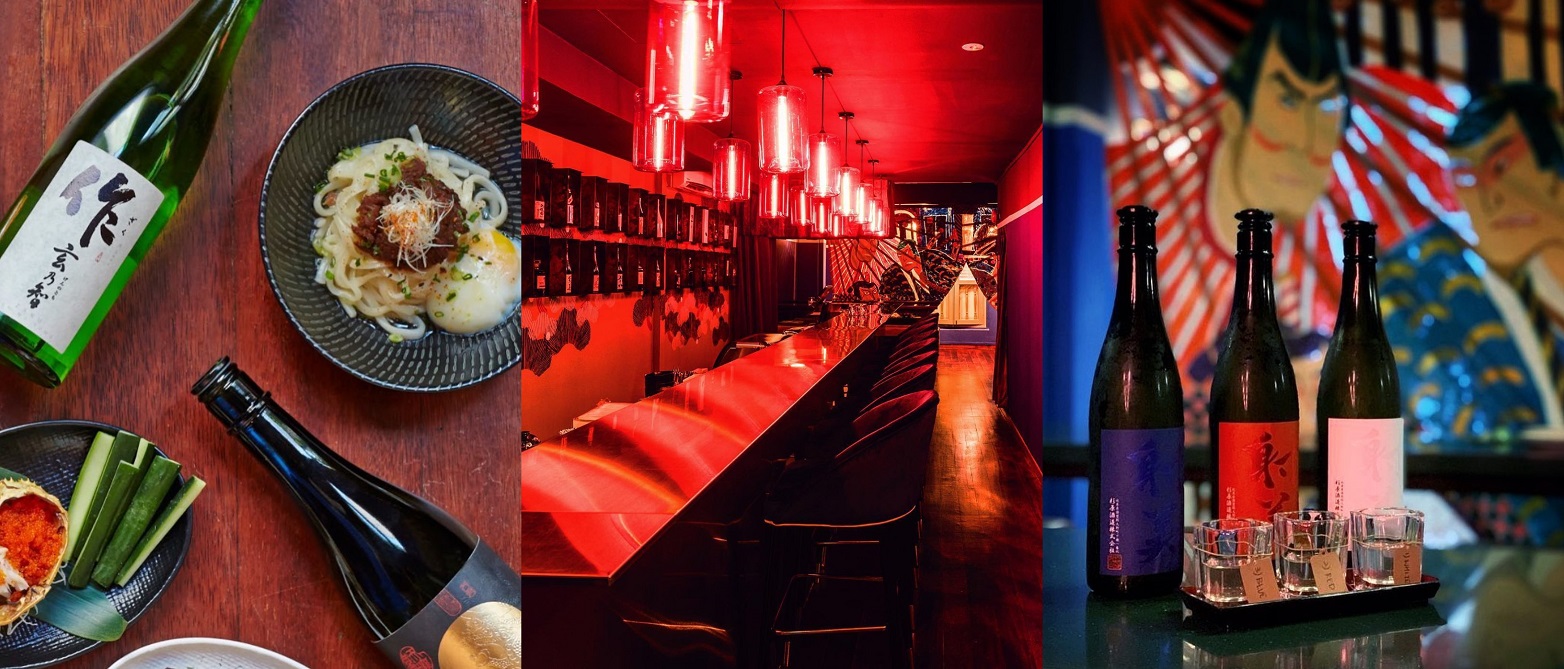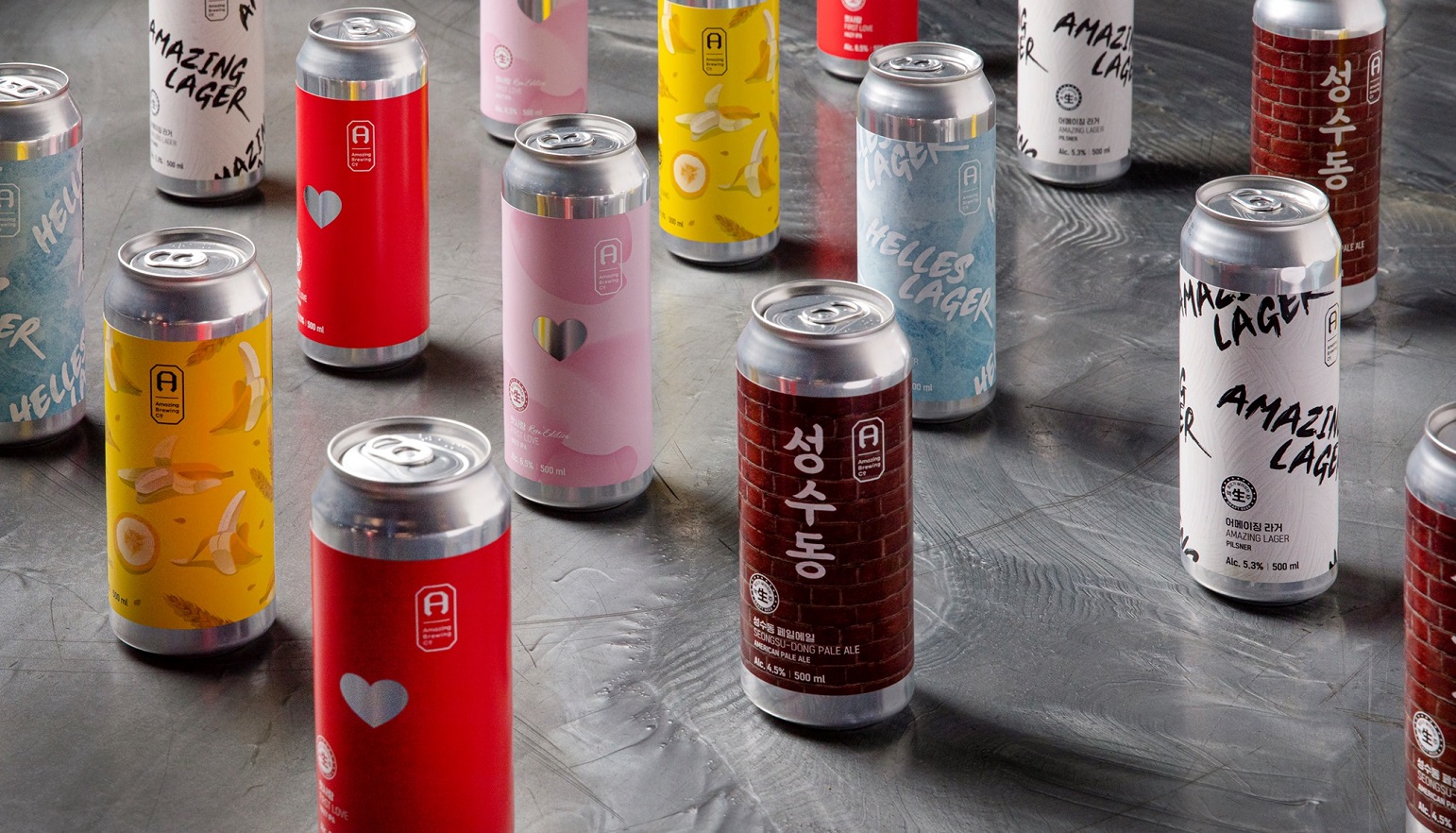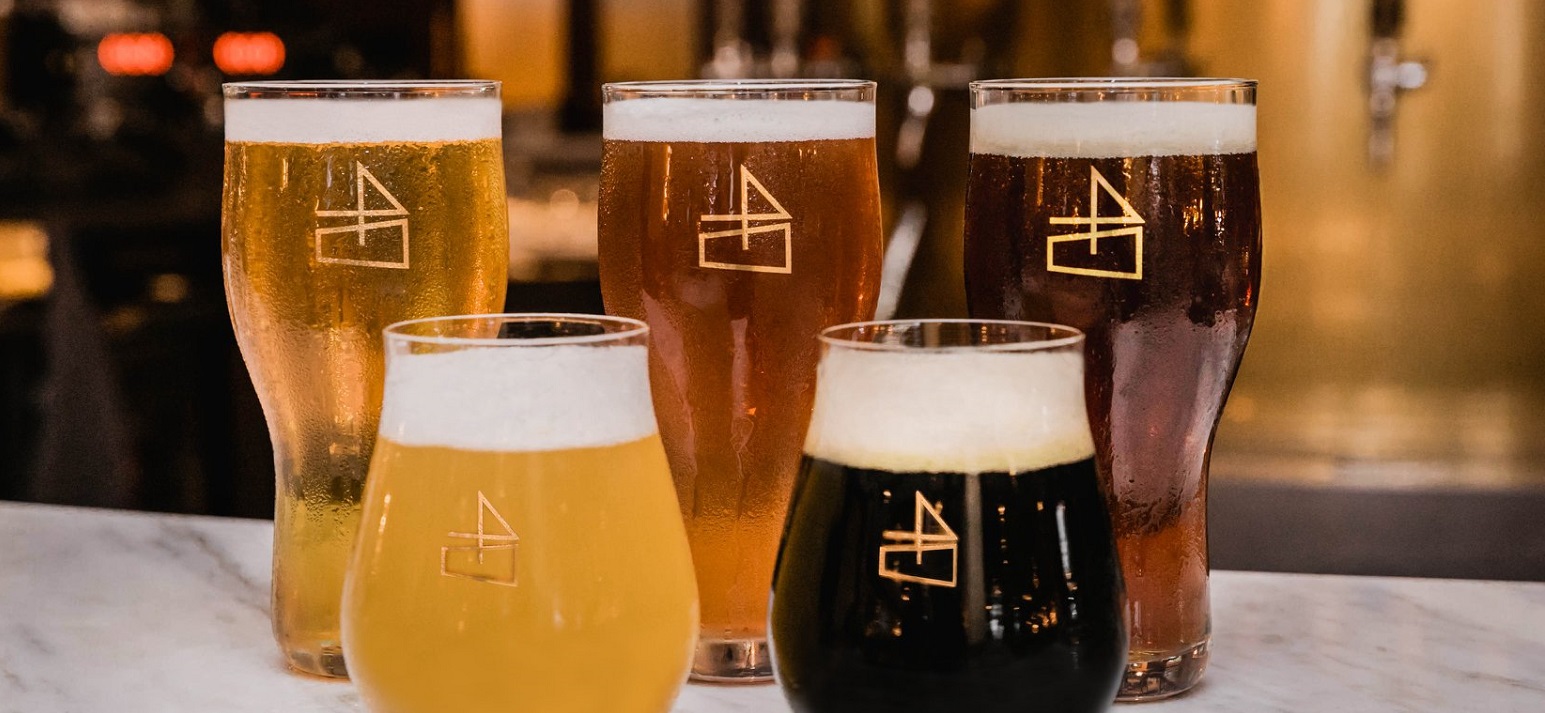In Singapore, think craft beer brands and the usual names like BrewDog and Mikkeller come to mind. If you’re in tune with the Asian scene, then you might think of Japan’s Yona Yona or Hong Kong’s Young Master. Local labels like Brewlander, Pink Blossoms and Rye & Pint might be familiar too.
Starkly missing are Korean craft beer brands. Why aren’t they around? Names like Galmegi Brewing and Gorilla Brewing are popular in South Korea, yet it’s unheard of in this part of the world.
Until now, that is.
Taking it upon himself to bring the Korean craft beer scene to Singapore is entrepreneur Tay Yu Yan, who recently launched Juju Brews, an online retailer and distributor of Korean craft beers in Singapore.
He, alongside his partner, a Korean native living in Seoul, works with craft breweries in South Korea to export their beers to Singapore. It’s a business that Tay plunged into because of his fondness for the scene.
“I had made several trips to Korea over the past few years, and each time I would sample some local beers depending on the city I was visiting,” says Tay, when asked about how his love for Korean craft beer came about. “Their designs really caught my eye at first, but the best thing I loved was the simplicity and quality of the beers.”
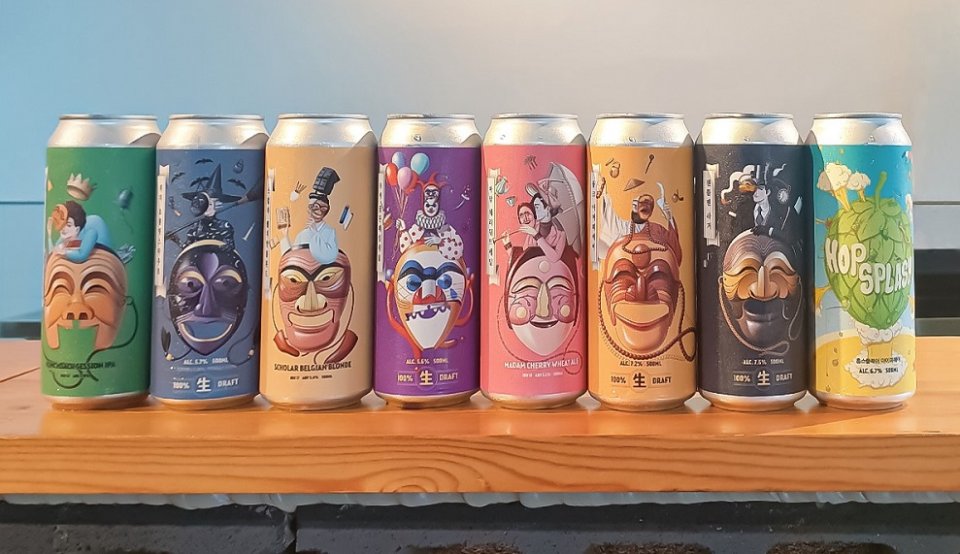
Playground Brewery’s beers. Their vivid can designs are inspired by traditional Korean masked dance-drama performances
He explains: “While in Korea, you can get a good Porter. No crazy additions, just a solid, extremely well made Porter, and they just call it a Porter. I don’t think many brewers elsewhere would dare just make a Porter these days and just call it that. They’ll need to call it a Chocolate Porter or Coffee Porter at the very least, otherwise people might skip it.”
Tay believes that while the modern craft market has been busy chasing “bombastic” beers with fancy additions and unusual names, it’s this simple adherence to quality that makes Korean craft stand out. That, and use of truly Korean ingredients such as yuja, hallabong, and even ginseng, Tay adds.
We caught up with the man himself to know more. In the interview below, we found out more about his journey, what’s there to know about Korean craft in Singapore, and how he manages to get small, far-flung breweries in South Korea to talk business in the first place.
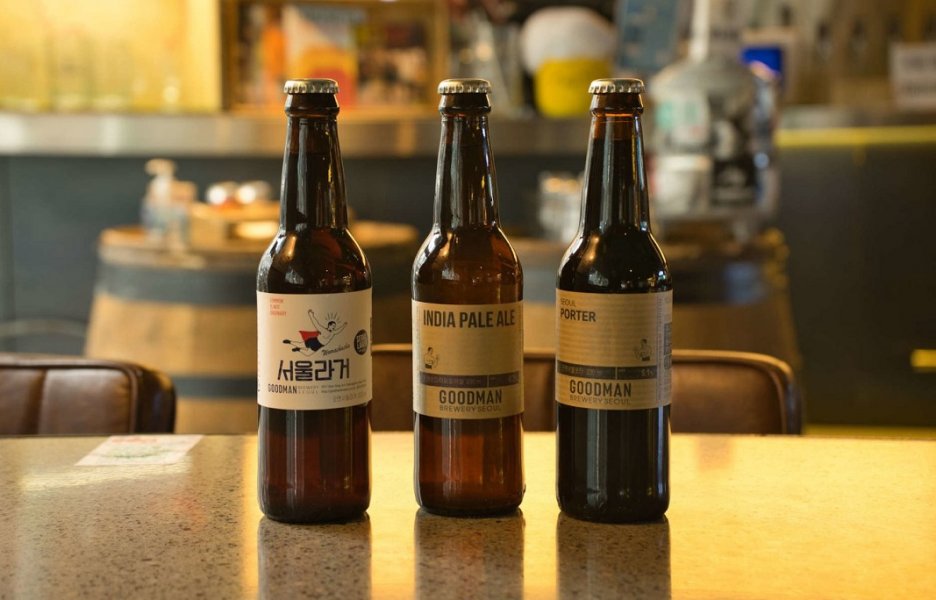
Goodman Brewery produces a solid core lineup of four beers that Tay finds are of top quality and consistency
Hi Yu Yan. Congrats on the launch of Juju Brews. How did you come up with the name?
Thanks! We did take a while to come up with a memorable name. All credit goes to my partner for coming up with it. We wanted a name that’s Korean but not overwhelmingly so. Ju (주) means alcohol in Korean, which people would know from words like soju and maekju, and we’ve always intended to also bring in craft soju and other liquors, hence Juju. Brews was just a nice way for the name to roll off your tongue.
What were you doing before and what led to you starting this business?
I was in the digital world doing tech/media sales. The thought had been at the back of my mind for a while since my last trip to Korea last year where I had some really high quality craft beers and soju. I kept wondering why none of their products had made it to Singapore yet, especially when so many other Korean products were so readily available. After doing adequate research, I dove in with my partner and kinda just never looked back.
In your opinion, do you think there’s a Korean craft beer style unlike the ones we’re used to?
With Singapore’s accessibility to global beers I don’t think there’s a style we’re not used to. But honestly, Korea mainly makes really high quality craft lagers. Due to the nature of the beer market in Korea where the general population attributes beer to Hite or Cass, breweries provide craft lager as a gateway option for people who are used to drinking those beers. But they do it with a “look what a really well made lager can taste like” attitude. So we get to see more variety of lager styles being brewed in Korea like Helles Lagers and Vienna Lagers, simply because other breweries typically don’t brew these styles as often.
Another thing is that because of how the craft beer market in Singapore is very consumer driven, consumers these days generally demand IPAs, NEIPAs or Stouts, and avoid older styles like Red Ales and Amber Ales. So importers or local brewers make a decision when they are ordering products or brewing and avoid styles that are not the popular ones. It becomes a self-perpetuating cycle. Consumers never get to see these other styles on the shelves or in taps and hence never demand them, and importers or brewers won’t brew or import those styles because there’s no demand. But in Korea, where more drinkers are still in the phase of trying different types of beer, it’s a lot more common to find great style varieties.
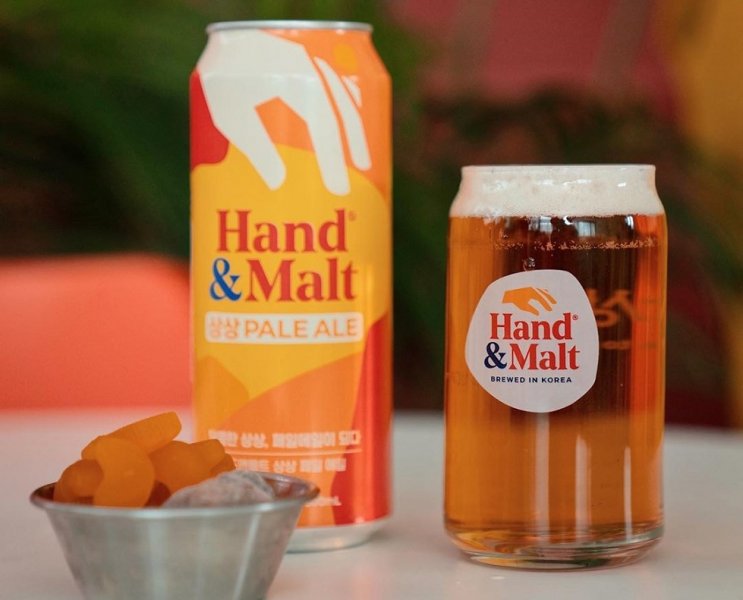
The folks behind Hand & Malt own their own hop farm, and brew ingredient-forward beers
Korea has such a burgeoning craft beer scene. Why do you think Korean craft beers never made it to Singapore before?
I think the biggest issue is price for sure. Korean craft beers really aren’t that cheap, partly because production cost isn’t cheap in Korea. But also mostly because the scale of these craft breweries in Korea really aren’t that big. Breweries benefit greatly from economies of scale, so compared to a country like Australia where you have a large domestic market, breweries in Korea just didn’t have the opportunity to scale as easily. Many of the breweries are focused on a brewpub style experience, brewing mostly for their in-house restaurant and taproom, and trying to import those beers were basically impossible due to cost.
The second part is that I think Korea hasn’t really focused on developing an export market because they have been so focused on developing the local market first, which has been a painful experience from my conversations with the breweries. There are so many loopholes to even distribute nationally and to get craft beers onto shelves of supermarkets just a few years back. As a result, many breweries still don’t have the export infrastructure in place and are only starting to develop it. Lucky for us, I think everything has slowly aligned for a craft beer boom in Korea, so we came in at a good time to start export conversations.
How do you go about sourcing for the Korean craft breweries to work with, especially since there’s a language barrier as well?
I first reached out to all the breweries that I had personally tried and can vouch for. The two main things we look at are the quality and diversity of styles and the scale of the brewery. Quality for sure is key for any craft product, but then style diversity is very important too. People want to continually try new products. You can’t win an audience with just a single beer. A good brewery has to be able to showcase their ability across a myriad of styles, and my intention with any brewery I’m distributing is to establish a long-term relationship and grow their brand in Singapore.
My girlfriend and partner is Korean and she currently lives in Seoul, and she helps me with a lot of the conversations due to the language barrier. Budnamu for example is a very local, traditional brewery that we’re currently working with. I believe this is the first they’ve ever exported outside of Korea.
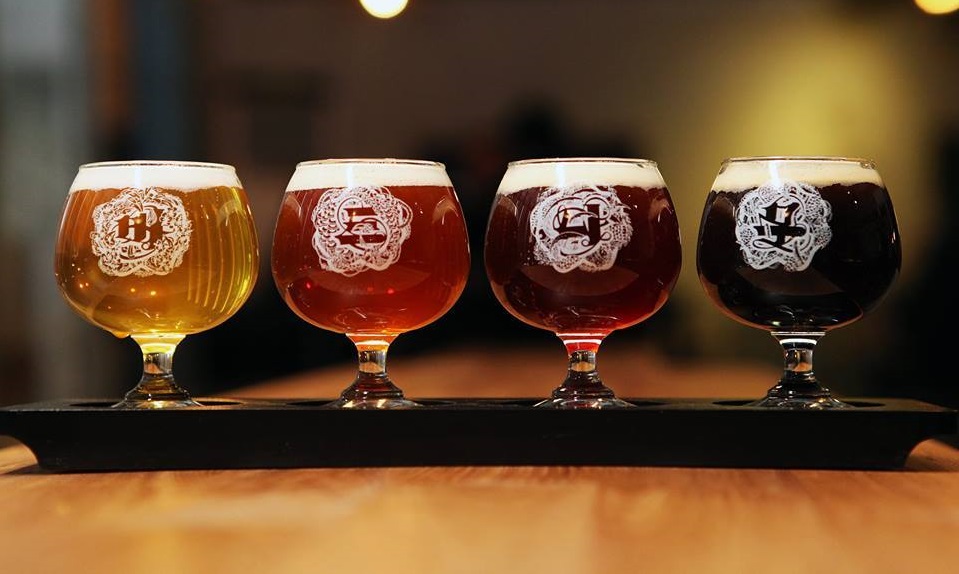
It was impossible to find Budnamu Brewery beers outside of South Korea, until now
I notice just seven breweries listed on your website now. Any plans in place to bring in more? Which ones?
For sure. There are currently over a hundred craft breweries in Korea so we’ve barely touched the tip of the beer barrel. I won’t name any until we manage to bring them in, but I think with what we have now we’ll focus on growing their market presence in Singapore before trying to actively grow the number of breweries. The worst thing we can do is to saturate the market too quickly before we have an opportunity to convince the audience in Singapore that Korean craft beer is going to be the next big thing.
Do you think Juju Brews benefits from the Hallyu wave?
I think that it definitely helps us in some form with the general Korean brand recognition, but the audience overlap of craft beer enthusiasts and Korean fans probably isn’t the greatest. If anything, we hope that we might be able to convince Korean fans that aren’t craft beer drinkers to join us.
In other ways, it might actually be detrimental. In Korean dramas, you often see people drinking soju and regular lagers. So bringing in craft beer, people start wondering that if Korean craft beers are good, why aren’t the actors drinking it on TV? Besides the fact that it’s produced in the same country, there’s no real association with craft beer and we can’t really lean on the Hallyu wave. Either way, we don’t intend to. We’ll let the quality of the products speak for themselves.
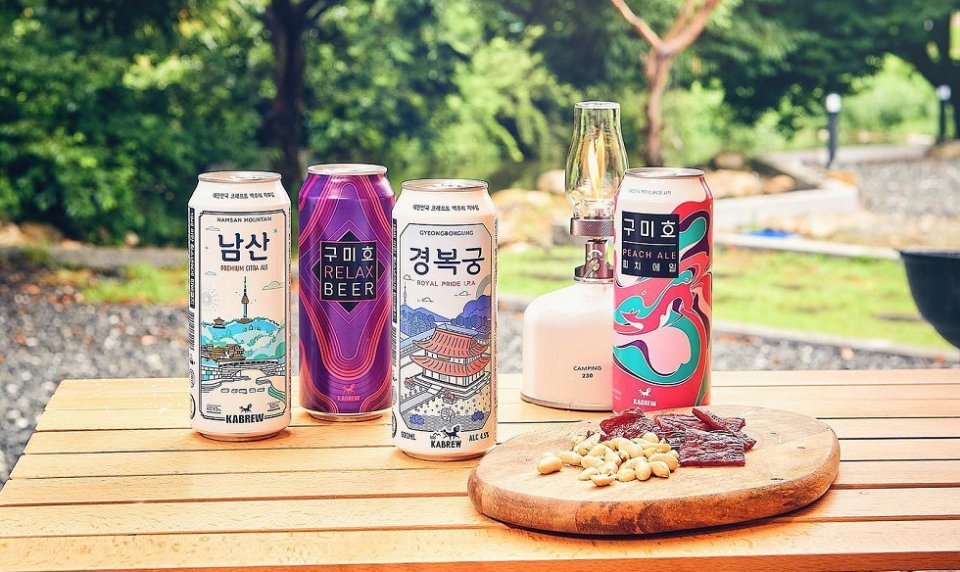
Kabrew from Gapyeong is all about the chill vibes
Besides selling directly online, are you planning to distribute your beers to bars and other establishments too?
Yes. The beers are already available at a few bars with more places coming soon. Our goal has always been distribution. The online store was just a good way to test the market and introduce the products while controlling the narrative without diluting the market too quickly. I’m sure you’ll start seeing Korean beers pop up in more and more establishments over time.
Lastly, and this is a slight rant, do you find it weird that even the Korean bars in Singapore don’t sell Korean craft beers?
I think this is a similar problem that the breweries are facing in Korea. You really can’t find craft beers in Korea easily outside of speciality taprooms and bars. Craft beer is still nascent in Korea, and honestly, the average Korean who isn’t into craft beer probably hasn’t heard of many of the breweries we’re bringing in. Hopefully, we can spread the word more and convince the bars that these products are a great representation of Korean products and would do justice to their brand to carry them!
Get your hands on Korean craft beers online from Juju Brews, or find it on tap, cans and bottles at bars like Malt Craft Beer Bar, Orh Gao Taproom, Sixteen Ounces Craft Beer Bistro and more.


